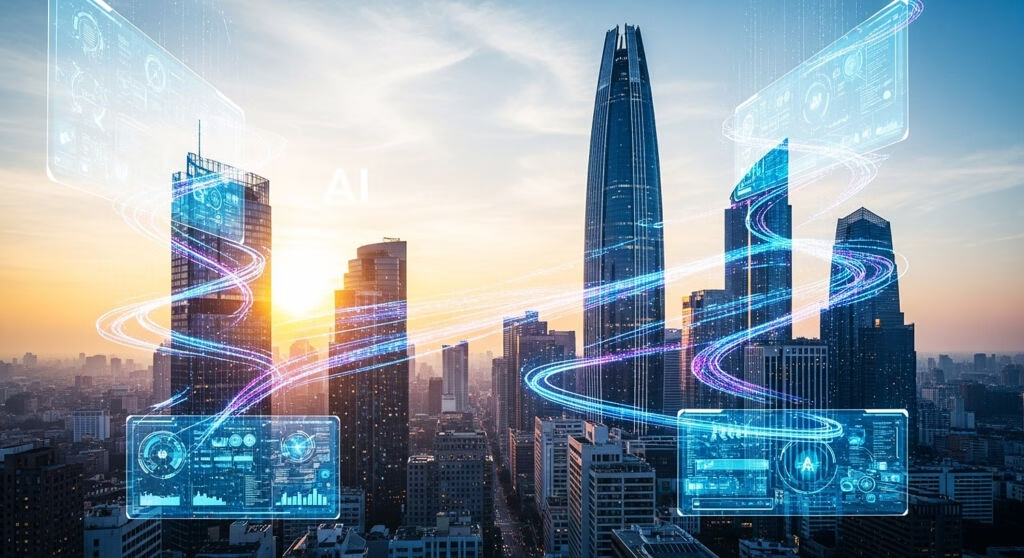“`html
AI Breakthroughs Defining 2025: The Latest Innovations and Trends
Estimated reading time: 15 minutes
Key Takeaways
- The pace of artificial intelligence development is accelerating, with profound implications across all sectors.
- Key themes for 2025 include advanced generative AI, more sophisticated agentic AI, the rise of physical AI, and a strong emphasis on sovereign AI and responsible AI.
- AI is poised to revolutionize industries, enhance creativity, transform education through personalized learning platforms, and accelerate scientific discovery with tools like those used in drug discovery and precision medicine.
- The integration of AI is becoming increasingly systemic, with breakthroughs in one area fueling advancements in others.
- While AI presents unprecedented opportunities for solving global challenges, critical ethical considerations, governance, and societal impact must be addressed.
Table of contents
- AI Breakthroughs Defining 2025: The Latest Innovations and Trends
- Key Takeaways
- The AI Landscape: A Foundation for 2025
- Pivotal AI Trends Shaping Industries in 2025
- Generative AI Advancements: Redefining Creativity and Productivity
- AI in Education: Transforming Learning and Teaching Paradigms
- AI for Scientific Discovery: Accelerating the Pace of Breakthroughs
- Interconnectedness: How AI Advancements Drive Cross-Industry Synergies
- The Horizon: Challenges and Unprecedented Opportunities
- Looking Ahead: The Continuing AI Revolution
- Frequently Asked Questions
The AI Landscape: A Foundation for 2025
The artificial intelligence landscape is evolving at an unprecedented rate. As we stand on the cusp of 2025, it’s clear that AI is no longer a futuristic concept but a pervasive force shaping our present. The surge in adoption, particularly for generative AI, is remarkable; business leader usage has jumped from 55% to 75% in just one year. This rapid integration is fueled by AI models that are becoming increasingly sophisticated, demonstrating remarkable speed, efficiency, and a capacity for tasks demanding human-like reasoning. The competitive arena is fierce, with giants like OpenAI, Google, and Anthropic pushing the boundaries of what’s possible. As organizations move towards large-scale AI implementation, the focus is shifting critically towards rigorous testing, meticulous customization, and the paramount importance of responsible deployment.

Pivotal AI Trends Shaping Industries in 2025
Several overarching AI trends shaping industries are set to define 2025, promising to redefine how businesses operate and innovate.
Agentic AI represents a significant leap forward. These are autonomous systems designed to adapt, make complex decisions, and collaborate effectively. They are capable of managing dynamic, multistep processes, thereby unlocking entirely new business models and operational efficiencies.
The integration of AI with the physical world is becoming increasingly prominent through Physical AI. This trend is driving smarter manufacturing processes, enabling advanced robotics in healthcare, and powering autonomous systems in logistics and agriculture, promising greater automation and precision.
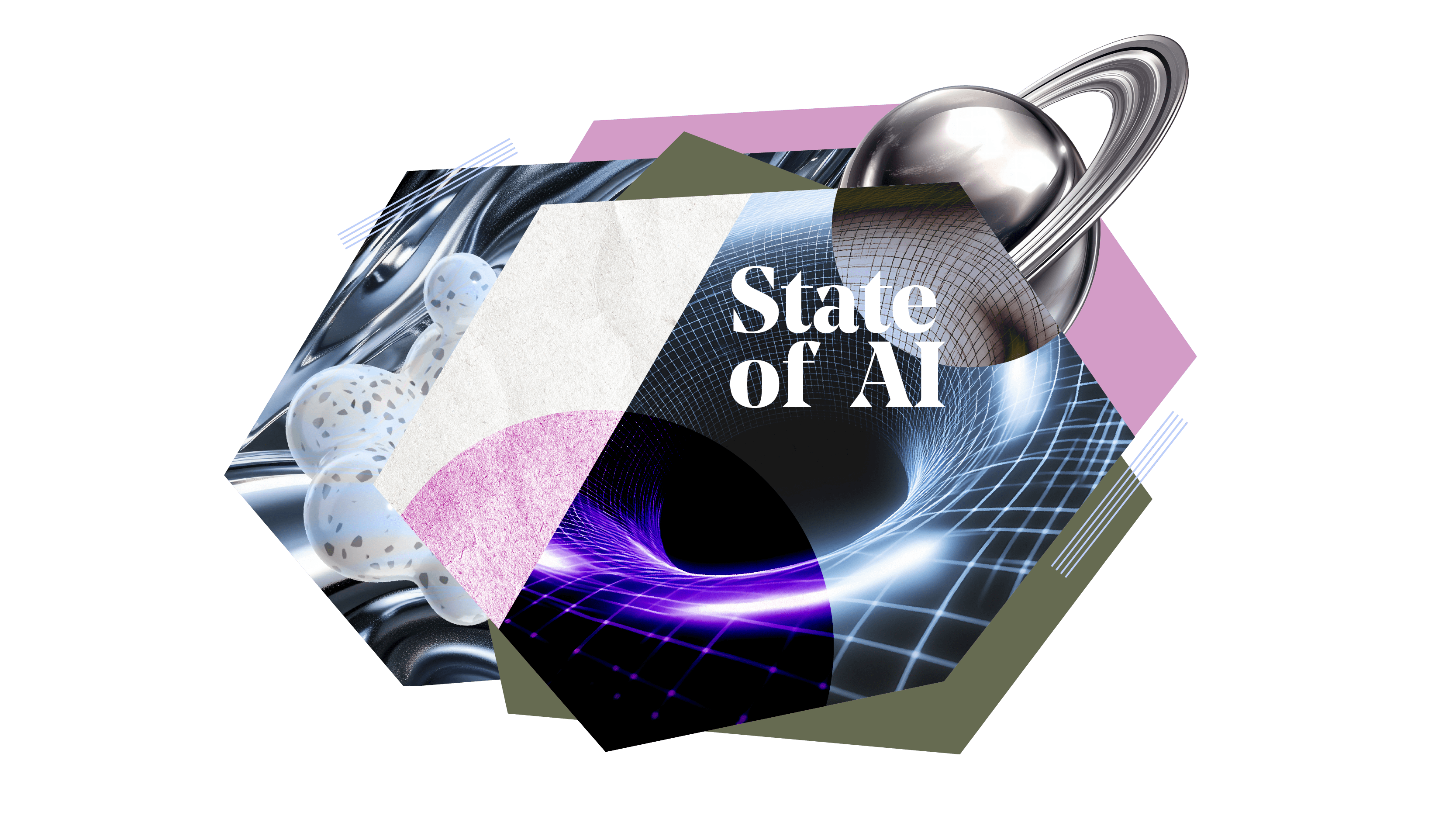
Driven by economic and security imperatives, Sovereign AI is emerging as a critical focus. This trend emphasizes national or organizational control over AI infrastructure and data, leading to significant investments in localized compute capabilities and a more deliberate approach to AI development and deployment.
The era of one-size-fits-all AI is fading. Specialization and Customization are key, with AI models becoming increasingly tailored to specific industries and tasks. Advances in data curation and post-training techniques, exemplified by models like Microsoft’s Phi and Orca, are making this hyper-personalization of AI capabilities a reality.
Underpinning all these advancements is the growing imperative for Responsible AI. The ethical implications, safety standards, and societal impact of AI are no longer afterthoughts but are becoming integral to the development process, ensuring AI benefits humanity broadly.

Generative AI Advancements: Redefining Creativity and Productivity
The field of generative AI advancements is rapidly moving beyond simple text and image generation. The next generation of models, including anticipated successors like GPT-5, Gemini, and Claude, are showing enhanced reasoning capabilities, improved accuracy, and a greater capacity for creative output, addressing many of the limitations that characterized earlier iterations. These sophisticated models are being integrated into a wide array of applications:
-
Content Creation: From marketing copy to novel narratives, generative AI is streamlining the creation of compelling content.
-
Design: AI is assisting in generating design concepts, optimizing layouts, and even creating entirely new visual assets.
-
Software Development: Automated code generation and debugging are becoming increasingly sophisticated, boosting developer productivity.
-
Professional Services: In fields like law and medicine, AI can automate tasks such as contract comparison and preliminary analysis of medical data.
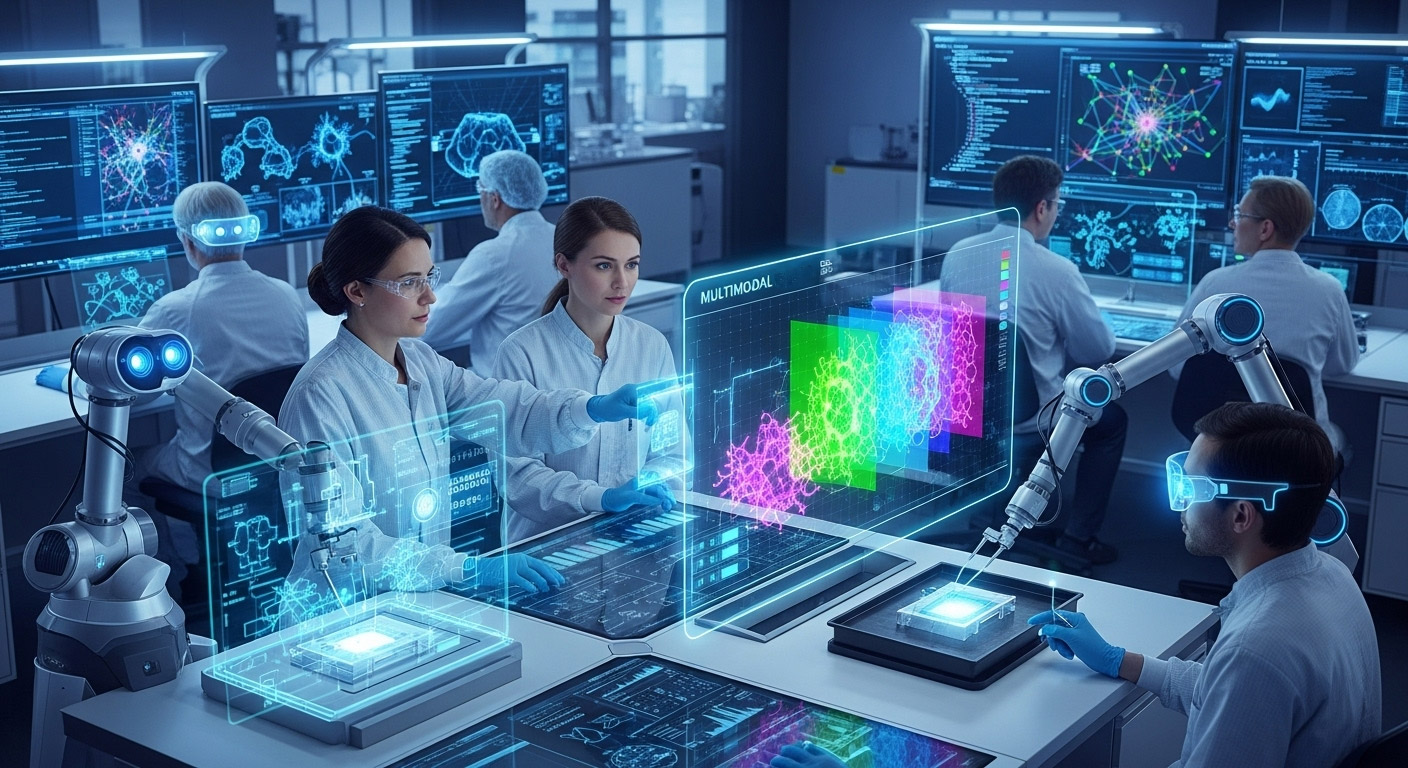
Furthermore, generative AI is enabling personalization at an unprecedented scale. Businesses can now leverage these technologies to offer highly customized customer experiences, tailoring interactions and recommendations to individual preferences and needs. This capability is transforming customer engagement and loyalty programs.
AI in Education: Transforming Learning and Teaching Paradigms
The impact of AI in education promises a profound transformation of learning and teaching methodologies. A cornerstone of this evolution is the development of personalized learning platforms that can dynamically adapt curricula to the unique needs, pace, and learning style of each student. These intelligent systems can identify areas where a student struggles and provide targeted support, ensuring no one is left behind.
Beyond personalized instruction, AI-powered tutoring systems are emerging as invaluable resources. Offering instant, 24/7 assistance, these tutors can answer student questions, provide explanations, and guide them through complex problems, democratizing access to educational support.

For educators, AI offers significant relief from administrative burdens. Tasks such as grading assignments, managing schedules, and analyzing student performance data can be automated, freeing up valuable time for teachers to focus on more impactful activities like lesson planning, mentorship, and direct student interaction.
However, the integration of AI in education is not without its challenges. Critical considerations include ensuring data privacy and security, guaranteeing equitable access to AI tools for all students, and carefully managing the role of AI to ensure it complements, rather than replaces, the invaluable human connection and nuanced guidance that educators provide.
AI for Scientific Discovery: Accelerating the Pace of Breakthroughs
AI for scientific discovery is revolutionizing research across virtually every scientific discipline, dramatically accelerating the pace at which we uncover new knowledge and develop innovative solutions.
In drug discovery, AI is proving indispensable. Systems like Microsoft’s AI2BMD are capable of complex protein simulation, enabling researchers to tackle intricate biomolecular problems with unprecedented speed and accuracy. This capability is crucial for developing new therapeutics and understanding diseases at a fundamental level.
In materials science, AI is instrumental in the development of novel, sustainable materials. By analyzing vast datasets and predicting material properties, AI accelerates the discovery of compounds with desired characteristics, paving the way for advancements in energy, manufacturing, and environmental sustainability.
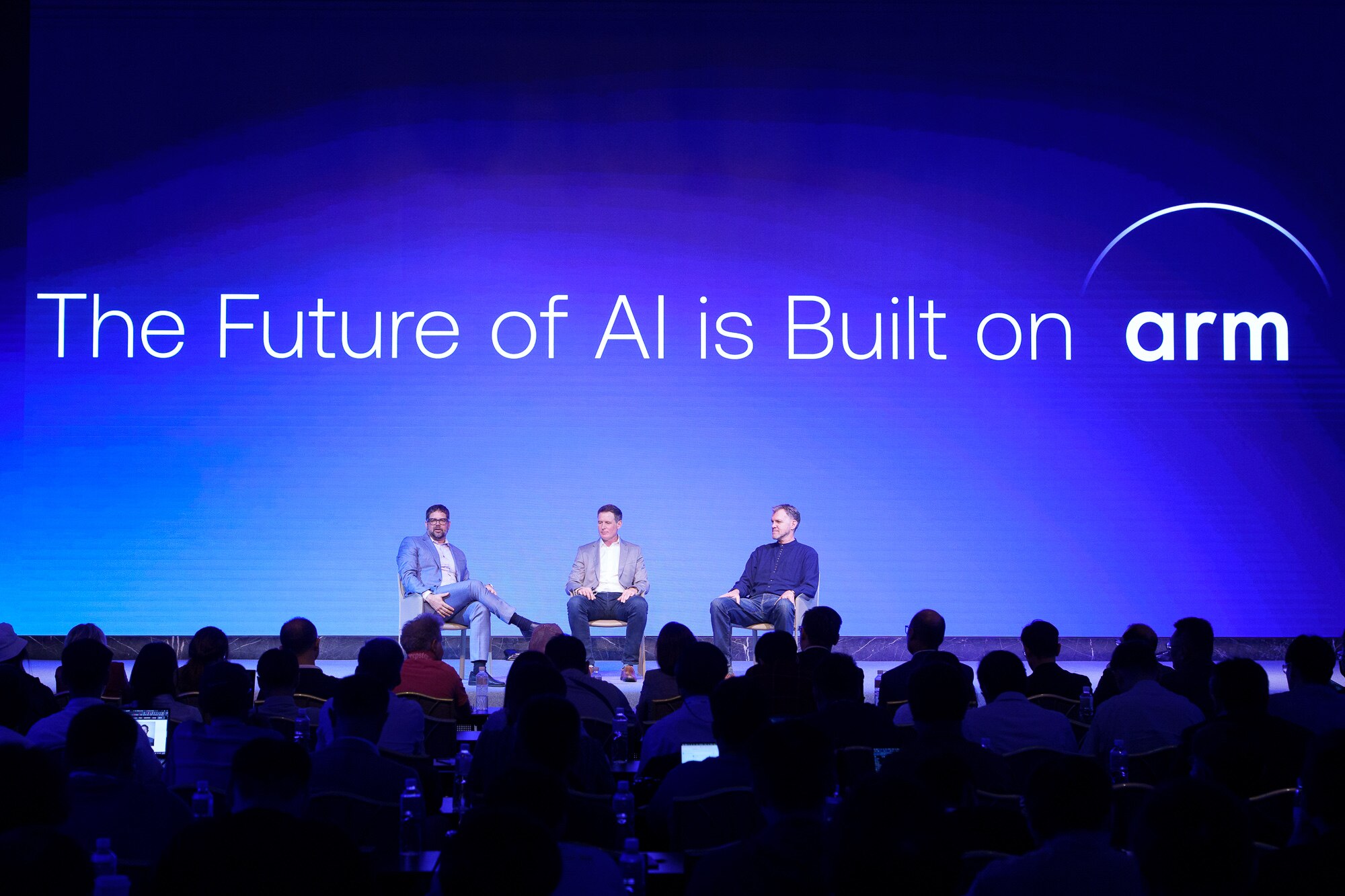
AI is also a powerful ally in understanding and combating climate change. Advanced AI models are enhancing climate modeling, providing more accurate predictions and insights into complex environmental systems, which is crucial for developing effective mitigation and adaptation strategies.
The field of healthcare is being transformed by AI, particularly through precision medicine. AI platforms analyze massive datasets—spanning genomics, medical imaging, and clinical records—to enable highly tailored treatments. For instance, Avenda Health’s Unfold AI is being used in cancer treatment planning, demonstrating AI’s potential to personalize care and improve patient outcomes. In essence, AI is significantly boosting the throughput and impact of scientific research, enabling discoveries that were previously unimaginable.
Interconnectedness: How AI Advancements Drive Cross-Industry Synergies
The progress in artificial intelligence is not happening in isolated silos. Instead, breakthroughs in one area of AI are increasingly creating powerful ripple effects, driving synergistic advancements across diverse industries. This interconnectedness highlights the systemic nature of AI innovation.
Consider how improvements in generative AI are directly enhancing scientific research capabilities. More advanced generative models can be used for sophisticated data augmentation, the generation of realistic simulation environments, and even the formulation of novel hypotheses based on existing research literature. This synergy accelerates the pace of discovery in fields from medicine to physics.
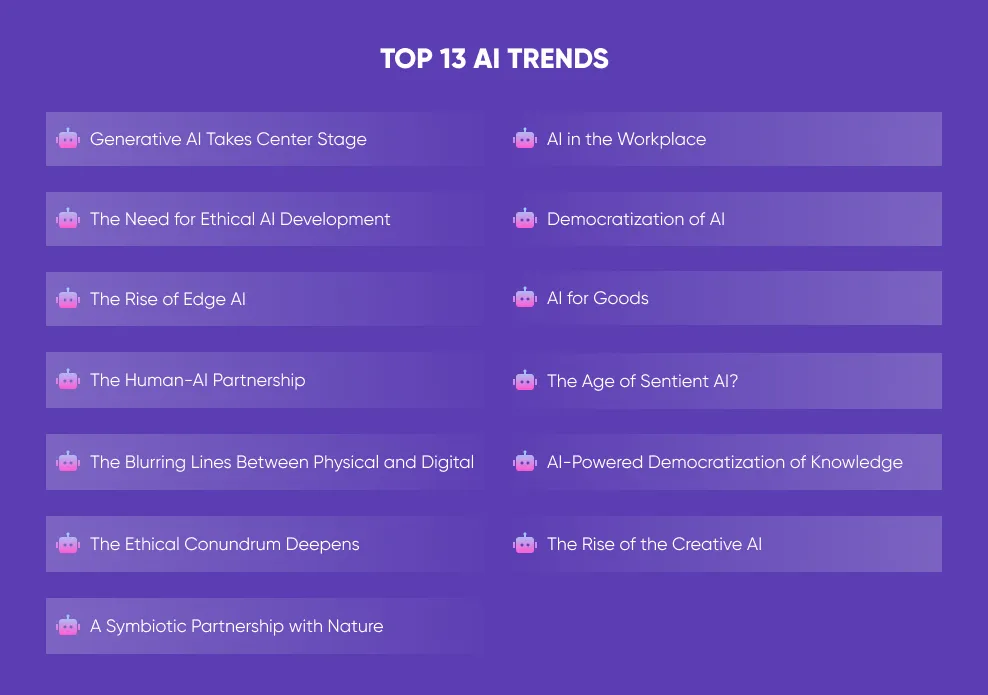
Similarly, the principles and capabilities developed within agentic AI are finding applications far beyond their initial scope. The ability of agentic systems to plan, reason, and act autonomously is informing the development of more sophisticated autonomous systems in logistics, manufacturing, and even customer service, demonstrating how fundamental AI research translates into practical, cross-industry solutions.
This cross-pollination of ideas and technologies ensures that AI progress is systemic. Advancements in natural language processing might improve human-robot interaction in factories, while breakthroughs in computer vision could enhance diagnostic tools in healthcare. The global innovation ecosystem is rapidly becoming a complex web where progress in one AI domain fuels development and creates new possibilities in many others, solidifying the notion that AI trends shaping industries are deeply intertwined.
The Horizon: Challenges and Unprecedented Opportunities
As we look towards the horizon of AI development, it’s clear that this technology presents a dual nature: immense opportunities coupled with significant challenges. The rapid pace of advancement, while exhilarating, demands careful consideration of its broader implications.
Critical challenges must be addressed. Ethical considerations, including issues of bias in algorithms, data privacy, and the potential for misuse, require robust frameworks and continuous vigilance. The economic impact, particularly the potential for job displacement due to automation, necessitates proactive strategies for workforce adaptation and reskilling. Furthermore, the development of comprehensive governance frameworks is essential to guide the responsible creation and deployment of AI technologies, ensuring they align with societal values and legal standards.

Yet, the opportunities presented by AI are equally profound. AI holds immense potential for tackling some of the world’s most pressing issues. In the fight against climate change, AI can optimize energy consumption, develop sustainable materials, and improve climate modeling. In healthcare, AI can enhance diagnostics, personalize treatments, and improve access to medical expertise, particularly in underserved regions. AI can also play a crucial role in addressing educational inequities by providing personalized learning experiences and accessible educational resources to students globally.
The imperative for 2025 and beyond is to strike a delicate balance: fostering innovation while simultaneously ensuring that AI’s development and application prioritize ethical considerations, inclusivity, and widespread societal benefit. This careful stewardship will be key to unlocking AI’s full potential for good.
Looking Ahead: The Continuing AI Revolution
The journey through the latest AI news 2025 reveals a landscape brimming with transformative potential. The myriad AI breakthroughs defining 2025 are not merely incremental steps but fundamental shifts that are reshaping industries, revolutionizing education, and accelerating the very pace of scientific discovery. The impact of these advancements, from sophisticated generative AI advancements to the practical applications of AI in education and cutting-edge AI for scientific discovery, is profound and far-reaching.

We are witnessing AI evolve from a tool into a collaborator, a catalyst, and a critical enabler of progress. The interconnectedness of these developments means that advancements in one area invariably fuel innovation in others, creating a virtuous cycle of technological evolution. The continuous progress in AI, with 2025 marking a significant milestone rather than a final destination, promises to unlock new possibilities and redefine human potential.
As we navigate this ongoing AI revolution, it is crucial to remain informed, adaptable, and engaged. Embracing the responsible development and application of AI is not just an option but a necessity to ensure that this powerful technology serves to uplift humanity and address the complex challenges of our time. The story of AI is still being written, and the chapters ahead hold immense promise.
Frequently Asked Questions
Q: What are the most significant AI breakthroughs expected in 2025?
A: Key breakthroughs are anticipated in advanced generative AI capabilities, the emergence of sophisticated agentic AI systems, the integration of AI into physical systems through physical AI, and a strong emphasis on national and organizational control via sovereign AI. Ethical AI development under the umbrella of responsible AI will also be a major focus.
Q: How is AI transforming industries in 2025?
A: AI is driving automation, enhancing decision-making, personalizing customer experiences, and creating new business models. Specific trends like agentic AI and physical AI are enabling more autonomous operations in manufacturing, logistics, and services. The general advancements in AI trends shaping industries are leading to increased efficiency and innovation across sectors.
Q: What are the latest advancements in generative AI?
A: Generative AI advancements are moving towards models with enhanced reasoning, greater accuracy, and more sophisticated creative output. These next-generation models are being integrated into content creation, software development, design, and professional services, enabling personalization at scale.
Q: How is AI impacting education?
A: AI in education is leading to the development of personalized learning platforms and AI-powered tutoring systems. It’s also automating administrative tasks for educators. The focus is on enhancing individual learning experiences while ensuring equitable access and maintaining the human element in teaching.
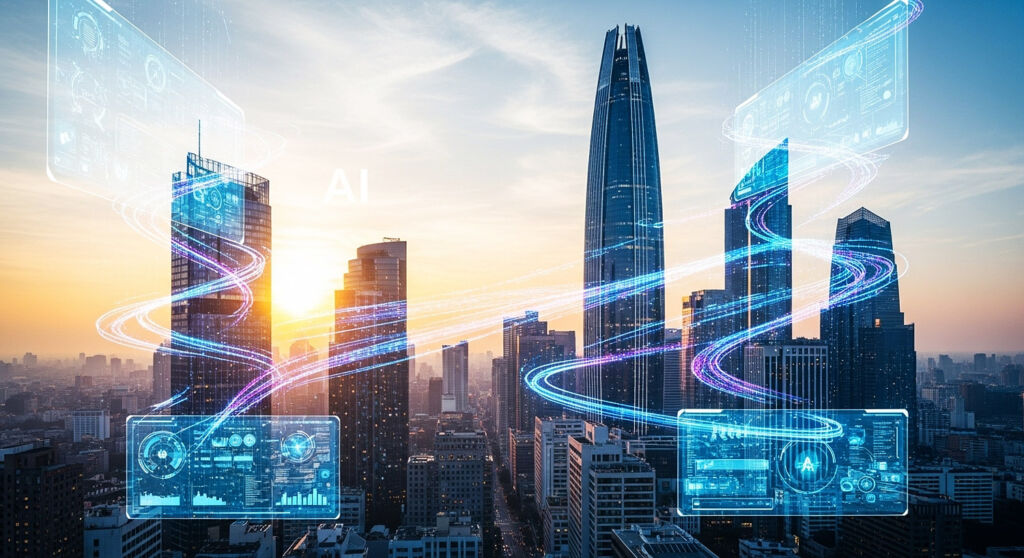
Q: What role is AI playing in scientific discovery?
A: AI for scientific discovery is dramatically accelerating research. Examples include AI-driven drug discovery, materials science innovation, enhanced climate modeling, and the application of precision medicine in healthcare. AI is increasing the speed and impact of scientific breakthroughs.
Q: What are the main challenges associated with AI advancement?
A: Key challenges include ethical considerations such as bias and privacy, the potential for job displacement, and the need for robust governance frameworks. Balancing innovation with responsibility is crucial to ensure AI benefits society broadly.

“`


